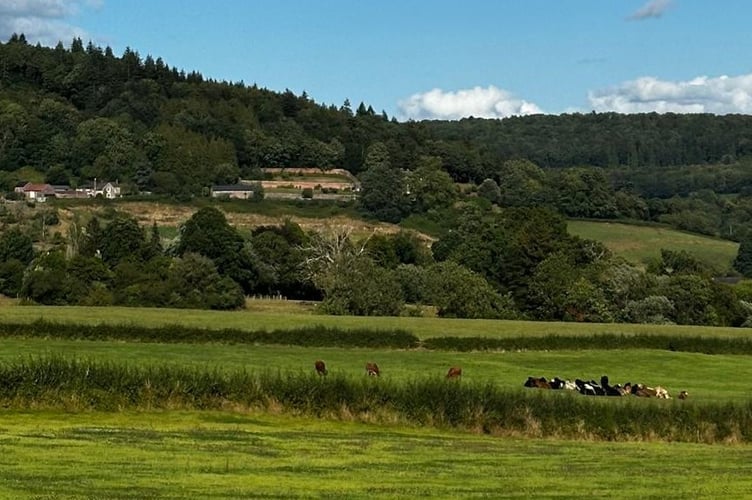PROTECTIONS for an endangered bat species near a potential housing development near the Herefordshire border could be lost, says a local environmental campaigner.
Jonty Pearce has claimed the Monmouthshire replacement local development plan put together by the county council, which identifies a possible site for up to 270 new homes off Dixton Road in Monmouth, has weakened protection for the Greater Horseshoe Bat.
The greenfield site known as Leasbrook, a mile from Ganarew in Herefordshire, is just over half a mile from Newton Court, a site of special scientific interest and one of just three in Wales where the European protected bats roost, according to Mr Pearce, and within the 3km “core sustenance zone” from which they feed.

He claims the development plan which Monmouthshire Council has consulted on replaces wording for specific measures to assess the impact of any development on the small flying mammals, without specifying actions that should be taken.
The council has already ruled that a full Environmental Impact Assessment (EIA) will be required ahead of any development, following objections from the likes of the Wye Valley National Landscape (AONB), who say it could damage the area's “picturesque, extensive and dramatic views”, and CADW, who say it could damage the Dixton conservation area, which includes the Anglo-Saxon Dixton Church.
Paul Griffiths, the council’s cabinet member responsible for the development plan through to 2033, said it doesn’t believe it has removed any ecological protections.
But Mr Pearce says: “Greater Horseshoe Bats rely on dung insects from grazing cows and hedgerows.
"Building housing would remove 20 football pitches of grazing land, rip out established hedges add artificial light and interrupt bat commuting lines.”
Mr Pearce said they are under threat in Wales, and already considered extinct in the Netherlands and Germany.
But he claims Monmouthshire Council has removed references to protections, such as bat activity and roosting surveys from a development plan document, as it considered the wording “too prescriptive”.
Cllr Griffiths responded by saying: “A balance has to be struck between polices which are necessary for the protection of all interests, including environmental interests and whether that balance has been achieved with the potential need for development.”
He said he will give “further consideration” to whether the council has “the right balance” as it considers responses to the consultation on the development plan, which closed in December.
The councillor said the concerns raised by Mr Pearce would also be reported to the planning inspector who will have to consider the development plan and whether it can be approved as “sound” and fit for use.
Cllr Griffiths said any proposals to build on any sites in the development plan would still have to be subject to a full planning application that would require detailed ecological surveys and proposed mitigations and enhancements.
At a Monmouth Town Council meeting, Town Councillor Martin Sweeney recently expressed concerns about the loss of habitat for the endangered bats, following the alleged ‘removal’ of key protections for the species as part of the recent Habitat Regulations Assessment.




